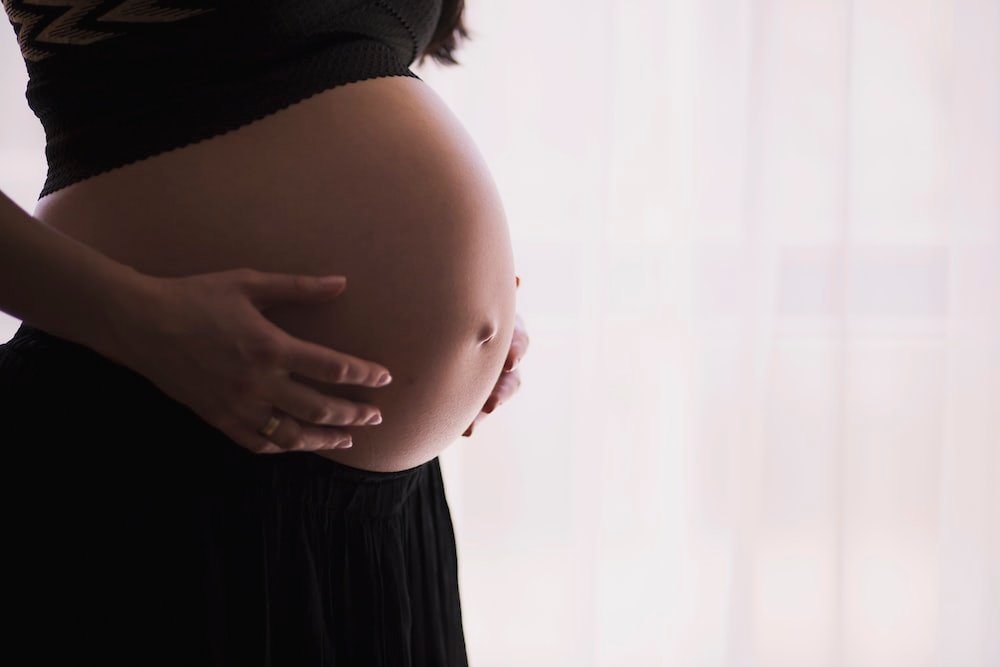The concept of a rainbow emerging from the clouds after a storm or other gloomy and upsetting event inspired the name "rainbow baby." In recent years, the term has grown in prominence on blogs and social media, and it has come to represent optimism and healing.
A healthy baby born after losing a baby to miscarriage, infant loss, stillbirth, or neonatal death is known as a "rainbow baby."

The arrival of a rainbow baby is a time of great joy, healing, and conflicted feelings for those who have experienced infant loss.
Due to the significant influence infants can have in assisting parents in recovering from a loss, rainbow babies are frequently referred to as "miracle" babies.
However, rainbow pregnancies can result in intense feelings of shame, fear, and worry. A rainbow birth is frequently accompanied by conflicting feelings of honouring a baby who has passed away while celebrating one that is healthy, and grieving a loss while celebrating new life.
Making room for conflicting feelings
Rainbow pregnancies are frequently emotionally difficult, including mixed emotions of joy, enthusiasm, and
elation with feelings of sadness and guilt. Processing your feelings requires your partner's help, expert
medical advice, and interaction with other people who have also experienced loss.
Postpartum sadness and anxiety are more common among women who have lost an infant. If this period is challenging for you, you can engage with a counsellor or mental health expert to obtain the support and care you require. There are services available to help, despite the fact that it may seem impossible to ever emotionally fully recover from the agony and loss of losing your baby.
For instance, keeping a journal can help you record your thoughts and feelings. When you are expecting a rainbow baby, self-care is equally crucial.
Keep in mind that grieving can be draining, and it can be even more so if you are expecting. Request the assistance you require at this time. It's acceptable to handle things one day at a time.
During your pregnancy, your doctor will inform you of the tests and monitoring options available. Your rainbow baby will be brought to term with the support of careful monitoring. Some moms find solace in the knowledge that their child is growing up securely.
One method of keeping an eye on your baby's health at home is to count their kicks. Because a shift in the third trimester is frequently the first indication of trouble, counting kicks is crucial. You can count your baby's kicks daily at the same time starting at 28 weeks. If you observe any changes or are worried about your baby's movements, let your doctor know.
A miscarriage occurs in 10 to 15 per cent of pregnancies during the first trimester or before week twelve of the pregnancy. Between weeks 13 and 19, another 1 to 5 per cent of women miscarries in the second trimester. It's also possible that up to 50% of pregnancies terminate in miscarriage, but many of these cases occur before a woman is even aware that she is pregnant.
Some factors that lead to miscarriage include:
Some miscarriages occur suddenly. Others, such as missed miscarriages, could occur without any warning. It's possible that nothing is wrong with you until you go to your specialist for an ultrasonography examination.
Whatever the circumstances, you might feel a great deal of grief, rage, or melancholy. You might perhaps initially feel numb before going through a range of emotions.
Your body may require up to a month to fully recover from a miscarriage. Depending on the type of miscarriage you had and whether you require medical assistance, the timeline varies from person to person.
A rainbow baby gives immense happiness after a very challenging time and represents recovery and optimism. However, rainbow babies serve as priceless remembrances for parents who have faced loss.
It's normal to feel utterly depressed about your previous pregnancy. Don't let other people dictate how you should express your pain; you might or might not always carry that sorrow with you. Take some time to mourn.
You can continue to remember the kid you lost even after having your rainbow baby in a healthy way. As your rainbow baby grows older, sharing your story with them can be comforting. Tell them how valuable they are to you.